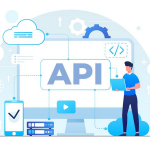DirectAdmin is a popular web hosting control panel that provides users with a range of tools for managing their hosting environment. However, as with any online service, it’s essential to implement security measures to protect your DirectAdmin account from unauthorized access and potential threats. Here are some essential security tips to safeguard your account.
Table of Contents
1. Use Strong Passwords
The foundation of any secure account is a strong password. Your DirectAdmin password should be a complex combination of upper and lowercase letters, numbers, and special characters. Aim for at least 12 characters in length. Avoid using easily guessable information, such as birthdays or common words. Consider using a password manager to generate and store complex passwords securely.
2. Enable Two-Factor Authentication (2FA)
Two-factor authentication adds an extra layer of security by requiring a second form of verification in addition to your password. This could be a code sent to your mobile device or generated by an authentication app. Enabling 2FA significantly reduces the risk of unauthorized access, as even if your password is compromised, the attacker would still need the second factor to log in.
3. Keep Software Updated
Regularly updating your DirectAdmin software and all associated applications is crucial for maintaining security. Software updates often contain patches for known vulnerabilities that could be exploited by attackers. Ensure that both DirectAdmin and any plugins or scripts you are using are up to date to minimize security risks.
4. Secure SSH Access
If you’re accessing DirectAdmin via SSH (Secure Shell), ensure that you’re doing so securely. Change the default SSH port from 22 to a non-standard port to reduce exposure to automated attacks. Use SSH key authentication instead of passwords for better security. If password authentication must be used, ensure you have a strong password.
5. Implement IP Whitelisting
Consider restricting access to your DirectAdmin interface by implementing IP whitelisting. This means that only specific IP addresses can access your control panel. This method significantly reduces the chances of unauthorized access since attackers would need to be operating from an authorized IP.
6. Monitor Login Attempts
Regularly review the login attempts to your DirectAdmin account. Look for any suspicious activity, such as failed login attempts from unknown IP addresses. Many control panels, including DirectAdmin, offer logs that can help you track access and identify potential threats. If you notice unusual activity, take immediate action to change your password and review your security measures.
7. Limit User Privileges
If you manage multiple users within your DirectAdmin account, be cautious about the permissions you assign. Only grant necessary privileges to each user based on their role. Limiting access can help reduce the potential impact of a compromised account. Regularly review user permissions and remove any that are no longer needed.
8. Configure Firewall Rules
A robust firewall can help protect your server from unauthorized access and potential attacks. Configure your firewall to block all unnecessary ports and only allow traffic on those required for your DirectAdmin operation. Ensure your firewall is regularly updated and monitored for unusual activity.
9. Use SSL Certificates
Always use SSL (Secure Socket Layer) certificates to encrypt the data transmitted between your web browser and the DirectAdmin server. This protects sensitive information, such as login credentials, from being intercepted by attackers. Many hosting providers offer free SSL certificates through services like Let’s Encrypt.
10. Backup Regularly
Regular backups are essential for recovery in the event of a security breach. Ensure that you have a comprehensive backup strategy in place, including regular backups of your databases and files. Store backups in a secure location separate from your primary server to ensure they remain intact even if your server is compromised.
11. Educate Yourself and Your Team
Stay informed about the latest security threats and best practices. Regular training sessions can help you and your team recognize potential phishing attempts, social engineering tactics, and other security risks. The more aware you are, the better prepared you’ll be to defend against attacks.
12. Use Security Plugins
If available, utilize security plugins designed to enhance DirectAdmin’s security. These plugins can offer additional features such as intrusion detection, malware scanning, and firewall protection. Choose reputable plugins from trusted sources to avoid introducing vulnerabilities.
Conclusion
Securing your DirectAdmin account is crucial to maintaining the integrity of your web hosting environment. By following these essential security tips, you can significantly reduce the risk of unauthorized access and protect your sensitive information. Regularly review your security measures and stay proactive in addressing potential vulnerabilities. With vigilance and the right precautions, you can ensure that your DirectAdmin account remains secure.

